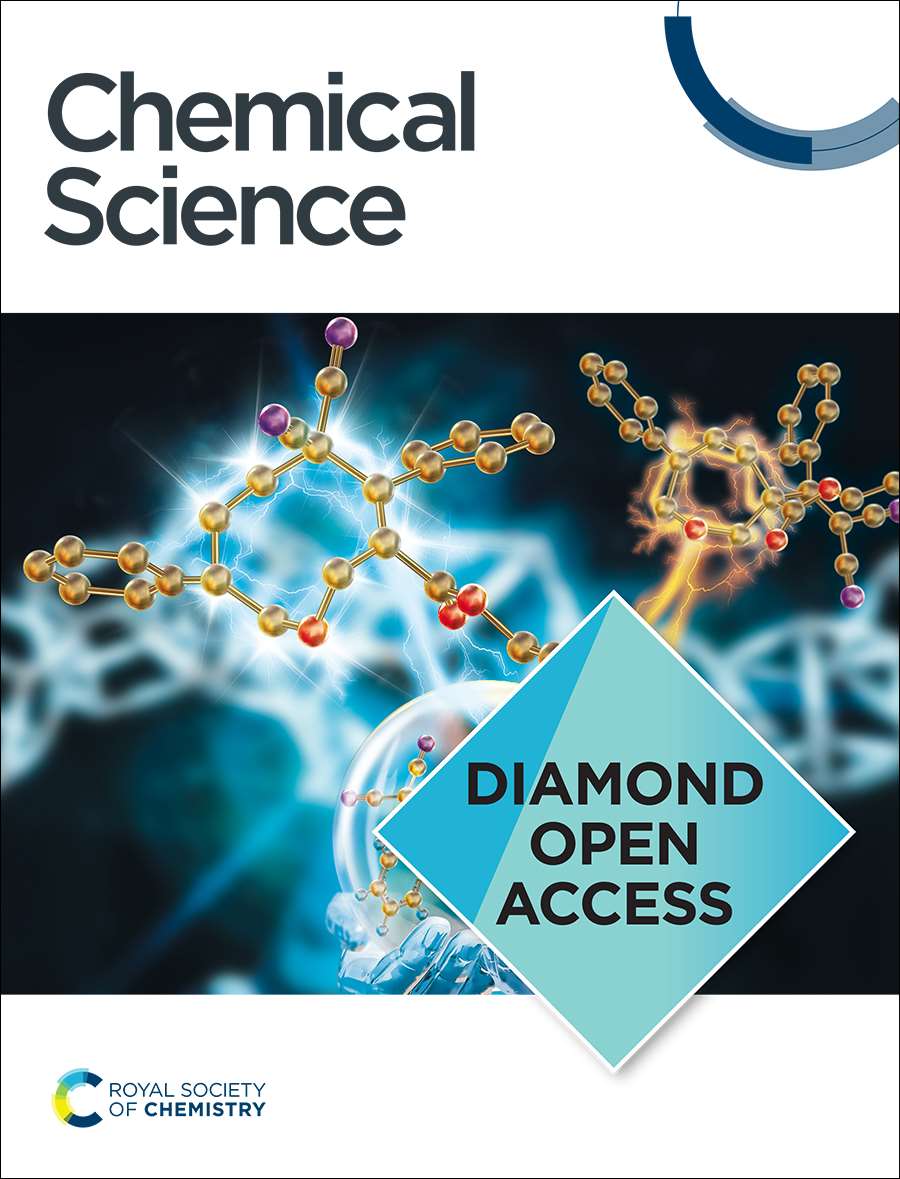Polyoxometalate-Encapsulated Metal-Organic Framework for Photocatalytic Uranium Isolation
IF 7.6
1区 化学
Q1 CHEMISTRY, MULTIDISCIPLINARY
引用次数: 0
Abstract
Recycling uranium (U) via adsorption and controlled conversion is crucial for the sustainable development of nuclear energy, in which photocatalytic reduction of U(VI) from aqueous solution is considered one of the most effective strategies. The primary challenge in the photocatalytic elimination of U(VI) resides in the demand for photocatalysts possessing exceptional attributes in visible light utilization effective U(VI) adsorption and charge separation. Herein, we developed the hybrids of polyoxometalate@Cu-metal-organic frameworks (POM@Cu-MOFs) through a self-assembly strategy and demonstrated the efficient removal of U(VI) via synergistic adsorption and photocatalysis. The abundant oxygen-rich groups in POM served as the adsorption sites, endowing POM@Cu-MOFs with a remarkable removal capacity (1987.4 mg·g-1 under light irradiation) to remove 99.4% of UO22+. The attraction of electrons from Cu atoms within Cu-MOFs effectively accelerated the carrier dynamics due to their pronounced electronegativity. The mechanism associated with the synergetic effects of adsorption and photocatalytic reduction of U(VI) was proposed. This work paves a feasible approach for efficiently eliminating U(VI) from aqueous solutions in environmental pollution cleanup using the POM@Cu-MOF photocatalyst.用于光催化铀分离的聚氧化金属封接金属有机框架
通过吸附和受控转换回收铀(U)对核能的可持续发展至关重要,其中光催化还原水溶液中的六(U)被认为是最有效的策略之一。光催化消除铀(VI)的主要挑战在于需要光催化剂在利用可见光有效吸附铀(VI)和电荷分离方面具有特殊属性。在此,我们通过自组装策略开发了聚氧化铝@铜-金属-有机框架(POM@Cu-MOFs)的混合物,并通过协同吸附和光催化证明了其对 U(VI)的高效去除。POM 中丰富的富氧基团作为吸附位点,赋予了 POM@Cu-MOFs 极高的去除能力(光照下为 1987.4 mg-g-1),可去除 99.4% 的 UO22+。由于 Cu-MOFs 具有明显的电负性,其内部铜原子对电子的吸引有效地加速了载流子动力学。提出了与吸附和光催化还原 U(VI) 的协同效应相关的机制。这项工作为利用 POM@Cu-MOF 光催化剂在环境污染净化中有效消除水溶液中的 U(VI)铺平了一条可行的道路。
本文章由计算机程序翻译,如有差异,请以英文原文为准。
求助全文
约1分钟内获得全文
求助全文
来源期刊

Chemical Science
CHEMISTRY, MULTIDISCIPLINARY-
CiteScore
14.40
自引率
4.80%
发文量
1352
审稿时长
2.1 months
期刊介绍:
Chemical Science is a journal that encompasses various disciplines within the chemical sciences. Its scope includes publishing ground-breaking research with significant implications for its respective field, as well as appealing to a wider audience in related areas. To be considered for publication, articles must showcase innovative and original advances in their field of study and be presented in a manner that is understandable to scientists from diverse backgrounds. However, the journal generally does not publish highly specialized research.
 求助内容:
求助内容: 应助结果提醒方式:
应助结果提醒方式:


